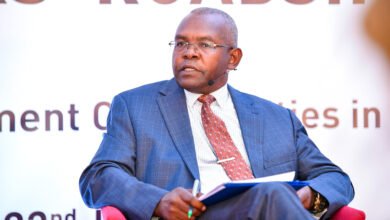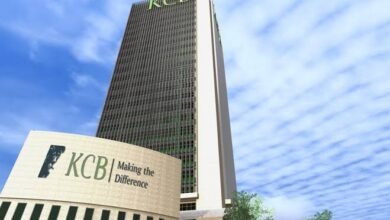
The Central Bank of Kenya (CBK) on Friday released a set of guidelines to strengthen the capacity of financial institutions to manage risks associated with climate change including recurrent droughts, floods, and wildfires.
The CBK said the issuance of Guidance on Climate-Related Risk Management to commercial banks and mortgage finance companies, marked a milestone in the country’s quest for green pandemic recovery.
“The Guidance is intended to enable banks to integrate the opportunities and risks arising from climate change in their governance structure, strategy, and risk management frameworks,” CBK said in a statement.
The set of guidelines will help commercial banks disclose climate-related information to key stakeholders including investors, regulators, and account holders, according to CBK.
Kenya is among African countries that have borne the brunt of the climate crisis as witnessed by severe droughts, water stress, and food insecurity.
The country’s apex bank noted that socio-economic consequences of climate change include loss of livelihoods, displacement, forced migration, and destruction of property that pose a huge threat to the sustainability agenda.
According to CBK, climate change coupled with ravages linked to the COVID-19 pandemic has worsened poverty and unemployment, while slowing down the implementation of a long-term development blueprint.
The industry regulator said it leveraged international best practices to develop the new guidance on the management of climate-related risks in the financial sector and accelerate green pandemic recovery in the country.
It added that the guidelines will inform future investment decisions by the banking industry in renewable energy projects, climate-smart farming, and resilient infrastructure.
Also Read:
- CBK Governor Njoroge challenges banks to embrace Paris Climate Agreement
- How private sector is driving sustainable waste management to conserve environment & combat climate change
- Equity Bank fights climate change by launching clean cooking initiative in schools
“In addition, banks will need to build their capacity to identify and mitigate risks arising from climate change. It is for these reasons that the issuance of the Guidance is timely,” said CBK.
On August 2 this year, CBK Governor Dr. Patrick Njoroge called on the urgency of the banks to meet targets to reduce greenhouse emissions under the Paris Climate Agreement following the rise of sustainability concerns.
According to Dr. Njoroge, banks must rise to this challenge as the consequences of failure are dire to society and banks since they reel from the damage to their loan portfolios from extreme weather events.
“Natural disasters, associated previously with developing countries, have spectacularly reared their ugly heads in the developed countries. In the last few weeks, once-in-a-millennium floods have ravaged Europe, while heatwaves and bushfires have scorched the western parts of the U.S,” said the Governor.
It is a serious concern that banks may be left with stranded assets, should they fail to keep abreast with the transition to a net zero emissions global economy
In order to maximize opportunities while minimizing risks that come with new technologies, CBK Governor asked the Uganda Bankers’ Association (UBA) to reinforce cyber defenses internally to neutralize the insider threat.
He also expressed concerned about the strong governance in the banking sector which he said should underpin the culture in the banks since banks play a critical role in foreign exchange markets and are
This even as he applauded rising innovations and new technologies in the banking sector in Uganda.
He spoke at the Uganda Bankers’ Association Fourth Annual Bankers Conference where he was the keynote speaker.
According to the Governor, rapid increase of innovations and new technologies are signaling significant opportunities to re-engineer the operations of governments and business and transform lives and livelihoods.
“From mobile banking to cloud computing, artificial intelligence to blockchain technology, internet of things, and robotics, all heralding significant opportunities to re-engineer the operations of governments and business and transform lives and livelihoods, “he said.
He lauded efforts achieved by the digitalization amid the COVID-19 pandemic saying it has enabled access to not just financial services but also other essential services including health and education despite various containment measures including social distancing, lockdowns, and stay-at-home protocols.





